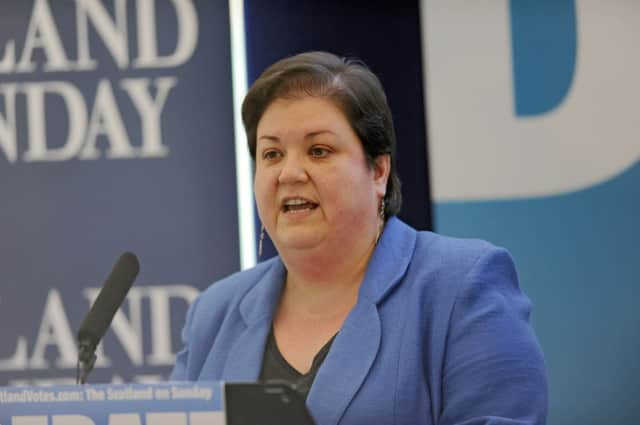Council funding gap warning over debt repayment


Annual repayments to the Scottish Government’s non-profit distribution (NPD) public-private partnership debt and its private finance initiative (PFI) predecessor is predicted to rise from £488 million to £600 million by 2024/25, the Accounts Commission said.
By this time, demographic pressures caused by an ageing population and more children will be rising.
Advertisement
Hide AdAdvertisement
Hide AdCouncils are already facing increasingly difficult financial challenges, according to the Commission.
Scottish Government funding for councils has decreased by 8.5 per cent in the last four years, and many councils are now reporting gaps between their income and the cost of providing services.
English councils have faced more severe cuts by the UK Government with a 37 per cent reduction over five years.
Scottish councils face increasing demand to implement SNP priorities such as the council tax freeze, free personal care, housing standards, class sizes and other legislation and national policies.
Pressure also comes from future spending commitments such as financing NPD/PFI debt, other borrowing, rising pension and equal pay costs and other liabilities.
The Accounts Commission said: “Annual interest and debt repayments have increased from £946 million in 2009/10 to £1.5 billion in 2013/14, with repayments for PFI and NPD contracts totalling £488 million in 2013/14 and predicted to peak at around £600 million a year between 2024/25 and 2027/28.
“Population projections indicate that there will be increasing demand for council services at the same time as financing charges are anticipated to peak.”
Scotland’s population is rising by 0.2 per cent a year, with over-65s expected to rise from 17 per cent to 25 per cent by 2037 putting pressure on social care and housing, and a 5.5 per cent rise in children putting pressure on schools.
Advertisement
Hide AdAdvertisement
Hide AdMidlothian Council alone, one of the smallest councils, thinks it will need 300 extra care home places at a cost of £6 million a year.
Some councils have increased or introduced new charges for services, but spending on services has decreased by 1 per cent.
Council reserves fell by 2 per cent in 2013/14 following several years accumulation.
It is not clear if councils’ planned savings will be enough to cover the reported gaps in funding or if they will need to make more savings, the Commission said.
Edinburgh Council is considering 1,200 staff cuts and working with voluntary groups to plug the gap.
Almost all councils’ auditors have indicated risks to the administrations’ financial positions in the medium to long term.
Specific risks include councils spending more money than planned, not making planned savings, unexpected compromises on the quality of services, an inability to meet demand for services and inadequate funds in their reserves.
Rent arrears increased by 24 per cent between 2012/13 and 2013/14 despite £29.4 million of Government discretionary housing payments (DHPs) handed out last year.
Advertisement
Hide AdAdvertisement
Hide Ad“This may, in part, be a result of welfare reforms,” the Accounts Commission said.
“So far, councils are managing the impact of welfare reform and many are spending money on support for people affected.”
Theresa Fyffe, director of the Royal College of Nursing in Scotland, said: “While everyone working in the NHS knows the available resources are being spread thinner and thinner in an attempt to keep the health service going, there is no doubt that local authorities are in an even more difficult place financially.
“Indeed, today’s report points out that local authorities are in the unenviable position of seeing an 8.5 per cent real terms cut in funding over the last three years while trying to meet ever-increasing demand for services due to people living longer.
“So the new joint approach to integrating health and social care between the NHS, local authorities and other partners comes at an exceptionally challenging time.
“Audit Scotland is quite right to emphasise the need for strong governance arrangements for the new integrated health and social care partnerships to ensure they stay on track and efficiently deliver effective services. There is no point in taking these reforms forward unless they genuinely improve the health and wellbeing of Scotland’s people.”
Scottish Labour finance spokeswoman Jackie Baillie said: “This report shows the huge pressure that local government is under in Scotland, and the reality of SNP austerity for the services we care about, like our schools and social care.
“We clearly need a new method of financing local government but after more than eight years in government, the SNP have done nothing but kick the problem into the long grass.
Advertisement
Hide AdAdvertisement
Hide Ad“The reality is starting to bite - jobs are already being lost and now we face the prospect of real and very damaging cuts to services. The SNP have underfunded local government for years and problems are now coming home to roost.”
FOLLOW US
SCOTSMAN TABLET AND MOBILE APPS